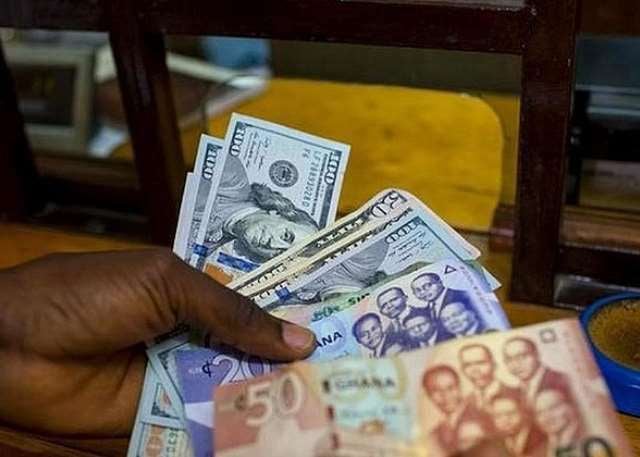The Ghanaian cedi experienced a marginal depreciation against the US dollar on Tuesday, September 23, 2025, reflecting the ongoing fluctuations in the foreign exchange market. Cedirates.com, a trusted source for currency and fuel rate information in Ghana, reported an average buying rate of GHS12.19 and a selling rate of GHS12.77 for the US dollar. This indicates a slight weakening of the cedi, as individuals and businesses seeking to acquire dollars needed to pay slightly more cedis than in previous trading periods. Meanwhile, at forex bureaus, the rates were slightly higher, with the dollar buying at GHS13.00 and selling at GHS13.45. This difference between the average rates and forex bureau rates is common and often reflects the mark-up added by bureaus to cover their operational costs and generate profit. The data highlights the dynamic nature of the foreign exchange market and the influence of various factors on currency valuations.
The interbank market, where financial institutions trade currencies amongst themselves, offered a slightly different picture. The Bank of Ghana reported an interbank buying rate of GHS12.26 and a selling rate of GHS12.28 for the US dollar. These rates are typically tighter than those found at forex bureaus, reflecting the larger volumes and lower transaction costs associated with interbank trading. The relatively small spread between the buying and selling rates on the interbank market signifies a relatively stable and liquid market for the US dollar. These interbank rates serve as a benchmark for other foreign exchange transactions and influence the broader currency market in Ghana.
The performance of the cedi against other major international currencies followed a similar pattern. The British pound traded at an average buying rate of GHS16.38 and a selling rate of GHS17.22 at forex bureaus. The Bank of Ghana’s interbank rate for the pound was GHS16.55, again demonstrating the tighter spread within the interbank market. Similarly, the euro traded at GHS14.29 for buying and GHS15.01 for selling at forex bureaus, while the interbank rate stood at GHS14.43. These figures demonstrate the interconnectedness of global currency markets, with fluctuations in one currency often influencing the values of others.
Money transfer operators, playing a significant role in remittances to Ghana, offered competitive rates for international transfers. LemFi and Taptap Send, two prominent players in the remittance market, provided attractive rates for sending money from the US or UK to Ghana. For US dollar remittances, LemFi offered a rate of GHS12.30 while Taptap Send offered GHS12.25. For British pound transfers, LemFi quoted GHS16.70 and Taptap Send GHS16.77. Euro remittances through these platforms saw rates of GHS14.48 for LemFi and GHS14.50 for Taptap Send. These competitive rates are beneficial for recipients in Ghana, as they maximize the value of the remittances they receive.
The rates offered by money transfer operators such as LemFi and Taptap Send often undercut traditional banking channels, reflecting the competitive landscape of the remittance market. These digital platforms leverage technology to streamline the transfer process, reducing overhead costs and enabling them to offer more favorable exchange rates. The increasing popularity of these services highlights the growing demand for efficient and cost-effective international money transfer solutions, particularly within the diaspora community.
For digital subscription payments to services like Netflix, Spotify, and Apple Music, using Visa and Mastercard incurred exchange rates of GHS13.21 and GHS13.11, respectively. These rates are specific to international transactions made through these payment networks and reflect the fees and charges associated with cross-border payments. The slightly higher rates for digital subscriptions, compared to some other exchange rates, may be attributed to the processing fees levied by the payment processors and the underlying currency conversion mechanisms. This information is relevant for consumers in Ghana who subscribe to international digital services, allowing them to understand the true cost in local currency.


